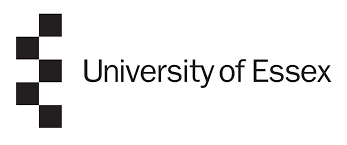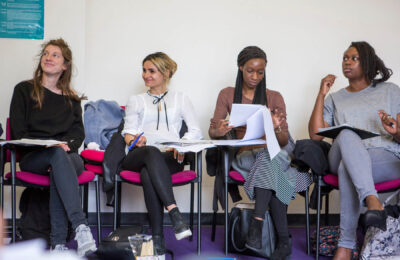
Consulting and Leading in Organisations DProf (D10D)
Gain an advanced and sophisticated education in organisational consultancy and leadership
This unique professional doctorate will provide you with an advanced and sophisticated education in organisational consultancy and leadership, within a stimulating learning community.
It will extend your understanding, experience and research skills within a systems-psychodynamic framework, allowing you to:
- join a thriving, multidisciplinary learning community, with a staff team of leading academics and practitioners, and a diverse student body
- explore a range of theories and their practical application to consultancy, leadership and research via formal teaching, discussion and supervision
- pursue an original research project, informed by your professional practice – contributing to the growing knowledge base in this field
- prepare to work with the most complex organisational issues, expand your consultancy and leadership practice, and to develop others in this way of working
About this course
In the first two years, you will complete two taught modules each year – Research Methods and Advanced Practice. These are designed to develop your consultancy and leadership skills and prepare you for a supervised research project.
Research Methods module
This module involves formal research teaching including lectures, seminars, research conferences and individual research supervision (from year two). The aim is to support your development as a practitioner-researcher so that you can develop your research proposal and have the skills to undertake it.
Advanced Practice module
This module includes presentations from a range of expert practitioners in the field, practice-based and theoretical seminars, peer discussions and individual practice supervision. The emphasis throughout is on the development and integration of theory and its practical application to consultancy and leadership in context.
Your research
The programme will equip you with the skills to design and execute original applicable research informed by professional practice. It will enable you to contribute to a growing body of knowledge about organisational consultancy and leadership from a systems- psychodynamic perspective and give you an advanced academic understanding of the field.
The research methods module is taught as part of our integrated doctorate programme in advanced practice and research. This will give you the opportunity to experience peer learning and support and the benefits of participation in a stimulating research community.
Towards the end of year two you will finalise the design of your research project which you will then carry out with the support of supervisors and peer discussion.
You may then take a minimum of three years and a maximum of four years to complete your research and write your thesis. During this time, you will benefit from access to online seminars and web-based learning opportunities provided by us and the University of Essex.
Previous students have undertaken wide-ranging and valuable research. Get inspired by reading our compilation of completed research projects.
Modules
Module 1: Research Methods 1
- Year one
- FHEQ level 8
- 30 credits
- Core module
- Module lead: Dr Nick Waggett
Module aims
The aims of the module are to:
- provide a sophisticated introduction to a range of research methodologies and research paradigms relevant to the conduct of applied professional research programmes
- introduce you to key debates about different ways of understanding the world in the social sciences, with particular attention to psycho-social, systemic, and organisational applications of these ideas
- through regular facilitated multi-disciplinary group sessions with other Professional Doctorate students, enable you to reflect on your identity, research aspirations, and methodological interests and thereby begin to reflexively position yourself as an applied researcher
- consider how applied research can be utilised to develop professional practice and contribute to extending the forefront of knowledge and/or professional practice within your own area
Module assessment
You must submit a 5,000 word critical and analytical literature review on a selected research topic, which may or may not be what you eventually opt to research for your thesis.
Module 2: Advanced Practice 1
- Year one
- FHEQ level 8
- 30 credits
- Core module
- Module lead: Dr Louisa Diana Brunner
Module aims
The aims of the module are to:
- develop in-depth knowledge and understanding of psychoanalytic and systems theory and appreciation of its application to organisations and organisational behaviour
- introduce a range of highly specialist areas of consultancy and leadership practice to broaden your awareness of the range of methodologies, to develop consultancy skills and extend your experience
- develop and apply innovative practice to be able to plan, undertake and evaluate at least three professional consultancy work interventions or projects undertaken as a leader using consultancy skills during the year
- critically appraise contemporary writing in the field and consider its credibility, authority, practical relevance and application
- develop your written and oral communication skills to a high level, to convey complex information clearly and effectively to specialist and non-specialist audiences
Module assessment
You must carry out a minimum of six consultancy assignments, or projects undertaken as a leader using consultancy skills, throughout the two years of the taught programme, in which you will either work alone or, where appropriate, as part of a team.
Two of these assignments must be written up as detailed case study reports in year one, and these form the assessment for Advanced Practice Module 1.
Module 3: Research Methods 2
- Year two
- FHEQ level 8
- 30 credits
- Core module
- Module lead: Dr Stephanie Davies
Module aims
The aims of the module are to:
- consolidate your learning from Research Methods 1 with your prior knowledge and experience in applied professional practice
- help you think critically and reflexively about problems in order to create new solutions and new knowledge
- enable you to choose an appropriate research design and research methodology for your research questions
Module assessment
You must submit a written assignment of 5,000 words, describing the research that will form the basis of your thesis and including a systematic literature review.
Module 4: Advanced Practice 2
- Year two
- FHEQ level 8
- 30 credits
- Core module
- Module lead: Dr Louisa Diana Brunner
Module aims
The aims of the module are to:
- introduce you to a range of highly specialist areas of consultancy and leadership practice to broaden your awareness of the range of applicable methodologies, to develop consultancy skills and to further extend their experience
- develop and apply originality and innovative practice to be able to plan, undertake and evaluate at least three professional consultancy work interventions, or projects undertaken as a leader using consultancy skills, during the year, in contexts unfamiliar
- critically appraise contemporary writing in the field and consider its credibility, authority, practical relevance and application
- develop your written and oral communication skills to a high level, to convey complex information clearly and effectively to specialist and non-specialist audiences. To support you in preparing written assignments for peer review and publication
Module assessment
You must carry out a minimum of six consultancy assignments, or projects undertaken as a leader using consultancy skills, throughout the two years of the taught programme, in which you will either work alone or, where appropriate, as part of a team.
To assess the Advanced Practice Module 2, one of these assignments is to be written up as detailed, 3,000 word case study in year two, accompanied by a 3,000 word professional developmental report and work log.
Module 5: Research Thesis
- Years three plus
- FHEQ level 8
- 240 credits
- Core module
- Module lead: Dr Simon Tucker
Module aims
The aims of the module are to:
- apply research skills in a real-world environment to complete a research project which is of some value to your field of professional practice in consultation or leadership
- implement original, relevant and purposeful research, with a sound basis achieved through integrating a review of existing literature, ontological and epistemological considerations, strategy, design and methodology appropriate to the research question
- articulate and defend the positions that you have adopted with regard to your research and successfully negotiate a viva examination based on determining the originality, reliability and validity of the research and the value to the profession
Module assessment
Assessment is through the submission and viva examination of a thesis up to 40,000 words detailing your original research.
Who is this course for?
This professional doctorate is for you if you are an organisation leader, consultant, or development and change professional with prior education and experience in the systems-psychodynamic approach and a desire to extend your skills and deepen your knowledge.
The student body and teaching faculty of this course are very international and come from a diverse range of backgrounds with experience across the public, not-for-profit and commercial sectors.
Course details
To be eligible, you need to either:
- have completed our Master’s degree in Consulting and Leading in Organisations: Psychodynamic and Systemic Approaches, or
- have a Master’s degree or equivalent in consultation, executive coaching, organisation development, change, leadership or similar, that includes a significant component of teaching in systems-psychodynamics.
You must also be:
- engaged in work as an organisation consultant (either employed or self-employed), or
- an employee with leadership or organisational development responsibilities, undertaking internal consultancy , or projects as a leader using consultancy skills, and with the capacity to develop wider consultancy projects whilst on the course.
Experience of participating in one or more Group Relations Conferences or other forms of experiential learning is strongly recommended.
Tuition fees
Home (2026/27)
£9,980 per year
International (2026/27)
£19,960 per year
Annual fee increases
Tuition fees are charged for each year of your course. If your course is longer than one year, the fees may be subject to annual inflationary increases. For more information on tuition fee changes, including paying for tuition fees, please refer to our tuition fee guidance.
Funding
Karen Izod bursary
For applications received before 31 January 2026 we are able to offer a one-off bursary of £1,000 for a limited number of students who commence their studies in October 2026. Once your course application has been received, we will ask you to submit a brief statement stating how this bursary would help you to pay the course fees.
Student loans
If you are studying a Master’s or Doctoral level course, you may be eligible for a postgraduate loan from the UK government. Please check our student loans guidance for eligible courses and criteria.
Funding for current students
We offer several funding options to support current students who need financial assistance during their studies. Please refer to our financial support guidance for more information.
Assessment
Knowledge and understanding of research methods is assessed via a critical literature review in year one and by the submission of a research proposal in year two, which may then form the basis for the research project and final thesis of 40,000 words.
You must carry out a minimum of six consultancy assignments, or projects undertaken as a leader using consultancy skills, throughout the first two years of the programme, in which you will either work alone or, where appropriate (and where you have a primary role), as part of a team.
Three of these assignments are written up as detailed case studies and are assessed on the basis of application of an ethical and client centred systems psychodynamic approach, understanding of organisational function and self-reflective capacity.
Other assignments are recorded as field notes as part of a practice log. This log is then appended to a professional development summary report which forms the last assignment and which is assessed on the basis of a reflective self-appraisal, consultancy mindset and the range of work presented.
Attendance
The course is part-time. In years one and two, you will attend the course for two consecutive days per month at the Tavistock Centre in London. One day is dedicated to research the other to professional practice.
The year is divided into three terms, each with 3 x 2 days of attendance. In years three, four and five you will be required to attend monthly online supervision group meetings, individual supervision, tutorial meetings, our research symposium and open lectures. From year three onwards much of the learning takes place online.
Proposed teaching dates for the academic year 2026/27
| Thursday 1 October 2026 | Friday 2 October 2026 |
| Thursday 5 November 2026 | Friday 6 November 2026 |
| Thursday 3 December 2026 | Friday 4 December 2026 |
| Thursday 7 January 2027 | Friday 8 January 2027 |
| Thursday 4 February 2027 | Friday 5 February 2027 |
| Thursday 4 March 2027 | Friday 5 March 2027 |
| Thursday 8 April 2027 | Friday 9 April 2027 |
| Thursday 6 May 2027 | Friday 7 May 2027 |
| Thursday 3 June 2027 | Friday 4 June 2027 |
Please note that teaching dates may be subject to change.
Graduates of this course have:
- improved and developed their consultancy practice
- developed internal consultant roles in their organisation
- taken up senior management and executive leadership roles
- become self-employed as consultants
- taken academic teaching posts
- started post-doctoral research projects
- published in key journals
- presented at international conferences in the field and other communities
- created a strong professional network and community of practice
- joined the teaching and supervision faculty on this professional doctorate programme
- become ambassadors for the Tavistock approach to consultancy and leading organisations
Application support and deadlines
If you have questions about our postgraduate courses, admissions process, or the specifics of your application, you can book a one-to-one online meeting with a member of our admissions team.
There are a number of important application deadlines associated with our postgraduate courses, however we encourage you to apply as early as possible, as spaces on our courses are limited and can be competitive.
Applications for this course are expected to close on Sunday 26 July 2026.
Why study with us?
This course is the only doctoral programme specialising in the Tavistock and Portman’s systems-psychodynamic approach to organisation consultancy, leadership and development.
The course will enable you to take your professional and academic development to an advanced level in order to meet the increasingly complex needs of organisations in our ever-changing and diverse world.
You will leave the course with a unique education in consultancy and leadership and as an expert in the specific organisational challenge, dilemma or idea that you have researched.
If you are a consultant or leader looking for supervision using the systems-psychodynamic method, please get in touch with our inhouse team of specialist consultants at Tavistock Consulting.
Testimonials
Course facilitators
Validations and accreditations
This course is validated by the University of Essex.
Apply now
Start your application for the September 2026 cohort of this course.
Please note: you may see the course D10D also referred to as SCDOTP002 in communications from our application system.


